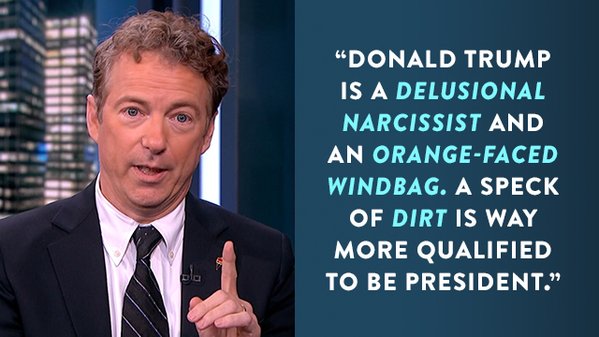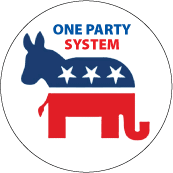Health/Medical
See other Health/Medical Articles
Title: The Healthcare Bill Debacle: Trump Edition
Source:
THE WARREN (HENRY) REPORT.
URL Source: http://warrenhenryreport.com/2017/0 ... re-bill-debacle-trump-edition/
Published: Mar 27, 2017
Author: Warren
Post Date: 2017-03-28 20:08:55 by Tooconservative
Keywords: None
Views: 1782
Comments: 2
Tomorrow, I may well write about House Speaker Paul Ryan’s arguably greater role in the current demise of the House GOP’s healthcare bill (AHCA), or at least what it ultimately means for him. Today, however, is to assess Pres. Trump’s role in Friday’s trainwreck, particularly because he seems determined to draw the wrong lessons from it. A number of post-mortems have already been written about Trump’s role, particularly his seeming inability to sell the bill to reluctant members of the GOP caucus (or, conversely, their supposed intransigence). I would argue that Trump’s failures stem from the fact that he and his lieutenants learned the wrong lessons from the 2016 election. In particular, I believe the 2016 campaign taught Trump that one can win by framing the final decision as a binary choice and bullying people into accepting the marginally lesser of two evils. I believe he also learned that one can be elected President without having to know much of anything about policy. These two beliefs made for a particularly toxic combination when it comes to passing legislation more complex than, say “build a wall.” The fact is that the House GOP caucus refused to accept that healthcare reform was a binary choice between AHCA and ACA, probably in part because House leadership had already abandoned a first draft of AHCA. Moreover, most of the House GOP Congress has been around long enough to know their majority derives in large part from the Democrats having to own Obamacare, both its cramdown and its consequences; many Representatives owe their current careers to it. The notion that Trump, Stephen Bannon & Co. were going to ask them to condense a cramdown into 18 days on a bill that had no constituency was a pipe dream. The idea that they were going to demand that elected officials — many of whom outpolled Trump in their districts — simply rubber-stamp a bill as instantly unpopular as ACHA was madness. Under more ordinary circumstances, this would be the point where I tempered that last statement by noting that passing a comprehensive reform bill with a narrow Congressional majority was always going to be difficult. But the fact is that the Trump administration and House leadership wanted to behave as though the opposite was true as a matter of basic strategy. They chose poorly. Of course, aside from considerations involving the legislative calendar, Trump in particular had few alternatives as a strategy. Although he fancies himself a dealmaker, his basic ignorance of healthcare policy, shared by most of the people around him (save HHS Sec’y Tom Price) rendered him unable to evaluate the merits of AHCA accurately or negotiate them with either conservatives or moderates. And again, policy actually matters to people whose careers depend upon it. It follows, therefore, that when you repeatedly respond to any attempt to discuss policy with profanity and dismissal, things will go badly. Had been able to discuss the bill intelligently, he might have understood those who thought he was demanding a day or two of winning in return for years of losing. Rather than accept that these were his problems, it seems Trump is resorting to another campaign favorite — ridiculing conservatives. He and his minions have trained their fire primarily on the House Freedom Caucus (HFC), but it extends to conservative think-tanks and advocacy groups, including those upon which he has relied heavily to date. Whether one believes this deep Politico post-mortem or their more Trump-friendly follow-up, the charge is essentially false, as moderates were slightly more likely to have publicly opposed AHCA than the HFC was. Even if some of the moderates went public based on public accounts of Trump’s pseudo-negotiations with the HFC, they were far more concerned with the CBO projections of lost coverage and increased premiums. Moreover, as Reihan Salam notes, the HFC was “fighting for a more deliberative, thoughtful approach that might yield a more coherent set of reforms.” But if Ryan really did not want the HFC as partners in the process, Trump was intellectually unequipped to even consider the possibility. As The Federalist’s Ben Domenech noted on Friday, GOP leadership “must develop a new, inclusive, transparent process.” This has been the case for years, but AHCA brought it to a head. Ryan is smart enough to potentially learn this lesson, if he can get over what he likely sees as a personal rejection. Trump & Co., otoh, seem inclined to conclude that they underestimated the fractiousness of the caucus and will try to sideline conservatives from upcoming efforts like tax reform. The tax bill, however, will again feature simmering problems about distributional effects, just like AHCA. It will also feature maddeningly complex issues like the controversial border adjustment tax. If the White House intends to charge forward without learning their agenda has broader problems and complexities they need to understand — as opposed to the mere opposition of the HFC — they are likely to repeat the same mistakes. Lastly, note that Trump and Ryan completely dropping healthcare is not simply a reflection of Trump’s general petulance, but a direct reflection of the so-called “binary choice” strategy. Having threatened people with “take it or leave it,” the administration is incentivized to at least act as though they’re leaving it. Their problem is that they really can’t leave it, at least not in the medium-term. As Obama was cut some slack on the Great Recession and Iraq as the inheritance of the Bush administration, so might the GOP get a little slack on their inability to immediately reform Medicaid and the individual health insurance market. But Obama timely acted on the Great Recession, even if the GOP didn’t like his approach. And Obama got out of Iraq (however precipitously) before running for re-election. The GOP House would be ill-advised to run through not one, but two cycles more of Obamacare slowly collapsing before the 2018 midterms, especially when their party is led by a president who announced his tolerance for watching the system burn.
Post Comment Private Reply Ignore Thread
Top • Page Up • Full Thread • Page Down • Bottom/Latest
#1. To: Tooconservative (#0)
Is it too early for the HFC members and supporters to announce their 2020 candidacy for predident, or should they hold off until after the next Trump/Ryan/Priebus brain fart and 2018 election massacre? He's going to have to take the gloves off this time though, and quit pussyfooting around. Yeah, a little too soon.

The D&R terrorists hate us because we're free, to vote second party
 "We (government) need to do a lot less, a lot sooner" ~Ron Paul
"We (government) need to do a lot less, a lot sooner" ~Ron Paul
#2. To: hondo68 (#1)
Is it too early for the HFC members and supporters to announce their 2020 candidacy for predident, or should they hold off until after the next Trump/Ryan/Priebus brain fart and 2018 election massacre?
Top • Page Up • Full Thread • Page Down • Bottom/Latest
[Home] [Headlines] [Latest Articles] [Latest Comments] [Post] [Mail] [Sign-in] [Setup] [Help] [Register]
